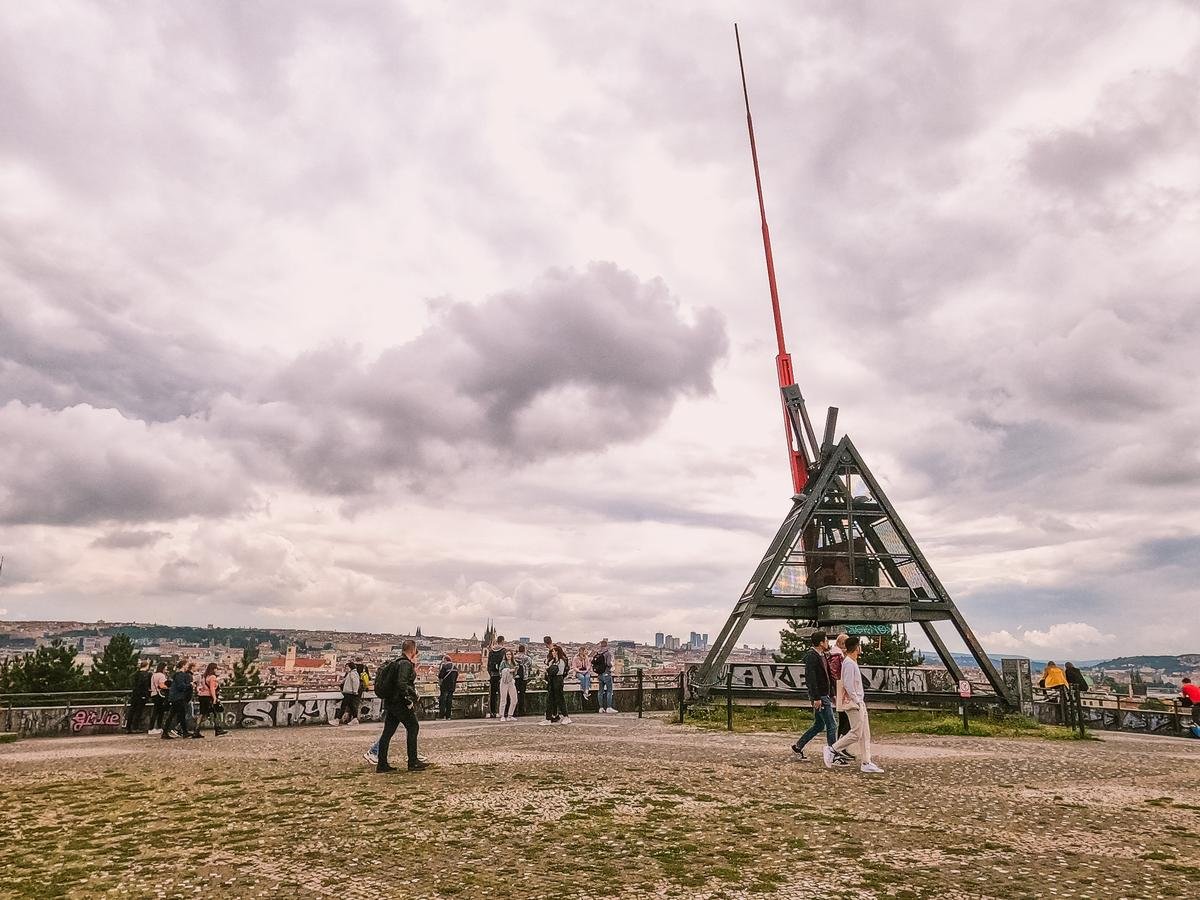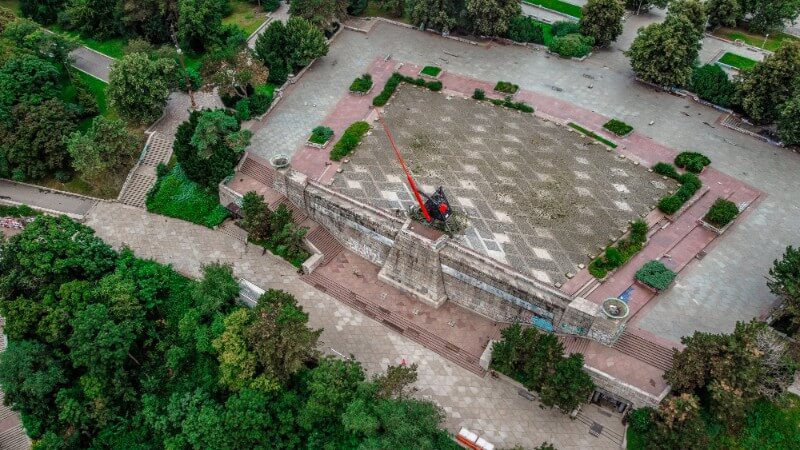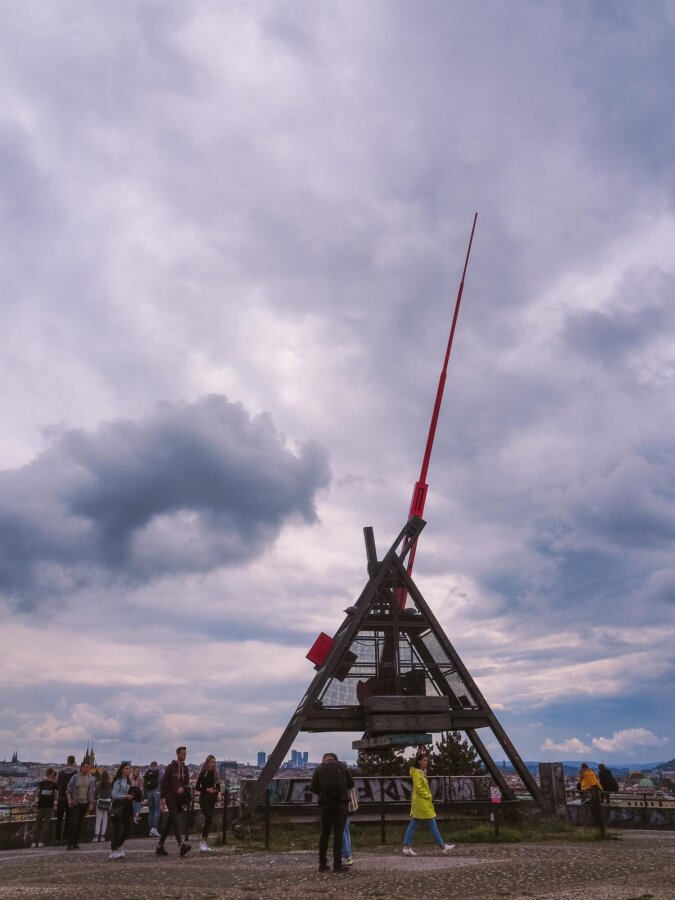The Prague Metronome: A Silent Witness to Time and Revolution
3 min readPlace Details
Name: Prague Metronome
Rating: 4.2 / 5
City: Czechia
Country: Prague
Address: nábř. E. Beneše, 118 00 Praha 7-Letná, Czechia
About Prague Metronome

The Prague Metronome, a symbol of freedom from communist rule, stands in Letná Park, replacing the former Stalin Monument. Erected in 1991 and known as the “Time Machine,” it’s the world’s largest metronome, silently ticking at 4-6 beats per minute. This iconic structure overlooks the Vltava River, offering stunning city views and a poignant reminder of the Velvet Revolution and the Czech Republic’s history.
History of the Prague Metronome

“In time, all things pass…” reads the plaque beneath the Prague Metronome. Standing atop the spot where a Joseph Stalin monument once stood is the Prague Metronome (Pražský metronom).
This giant kinetic sculpture, erected in 1991, symbolizes the country’s freedom from the communist party rule. If you’re curious about the country’s communist history, be sure to visit the Museum of Communism.
Given that it is the largest metronome in the world, it is usually just referred to as the Prague Metronome, though the sculpture is actually called “Time Machine.” The iconic red metronome in Letná Park is beside the Vltava River. Although silent, it does operate at a rate of four to six beats per minute.
It is a symbol of time moving onward, a reminder of the country’s Velvet Revolution and separation from Slovakia in 1989. The metronome is so enormous that you can see it from Prague Castle across the way.
See Related: Is Prague Safe? Important Safety Tips for Travelers
The Former Stalin Monument
Completed in 1955 after over five years of labor, the enormous Stalin Monument was unveiled in Letná Park, where the Prague Metronome now stands. The Stalin statue was the largest group in Europe and the biggest monument to Joseph Stalin on the planet.
This huge statue sat upon a marble pedestal weighing over 18,000 U.S. tons, at the enormous sum of over $140 million crowns (5.9 million USD today). It was designed by sculptor Otakar Švec, who entered the design contest in 1949. The sculpture died by suicide just days before the unveiling.
While known as the Stalin Monument, the title given to the piece was “a monument to love and friendship.” It was demolished in 1962 with nearly 2000 tons of dynamite, and 60 years later, archaeologists discovered a leveled forced labor camp near the site. After demolition, part of the base area was used as a bomb shelter before the metronome was eventually erected.
How to Visit the Prague Metronome

Over the Vltava River from Old Town, the Prague Metronome is about a 1.6-mile walk from Old Town Square. You can easily catch a bus or the metro to get to Letná Park to save some walking time. Once you’re there, it doesn’t cost anything to visit the Prague Metronome.
If you want to learn more information, a plaque near the metronome denoting the history of Stalin’s Monument. It won’t take very long to visit the sculpture itself, giving you plenty of time to admire the city from the park location. You get an incredible view of the city from here.
It is also a very popular spot for local skateboarders. So you might want to stay and watch them do their thing. You’ll see quite a few locals enjoying the abundant nature here, putting you in good company.
A word of warning: there are about 250 stairs to get up to the park. However, you can avoid many stairs if you take one of the trams to Letenske Namesti. If you visit in January, the climb won’t feel so bad. But I wouldn’t take them in the summer myself.



